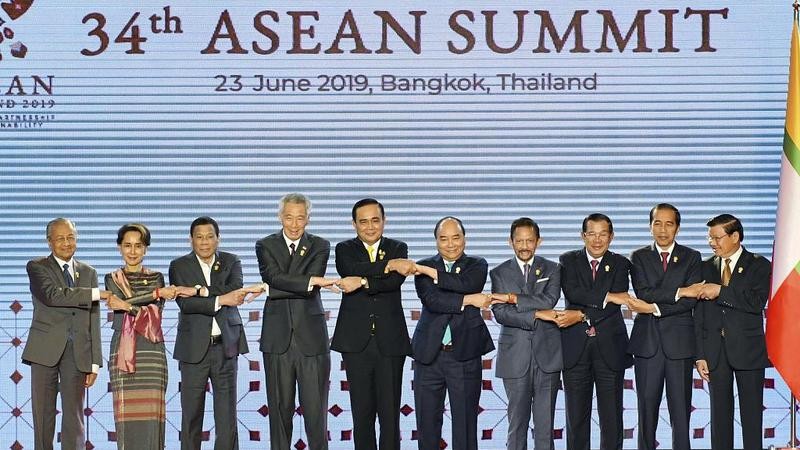2019-07-02
Prime Sarmiento in Hong Kong

The ASEAN summit on June 22 and 23 in Bangkok reached consensus on a number of key issues that analysts say will bring the bloc closer together and make it an “agenda setter”. Leaders attending the 34th Association of Southeast Asian Nations Summit emphasized “ASEAN centrality” — advancing and implementing policies that are based on regional interest. In a statement issued after the regional meeting, the leaders of Brunei, Cambodia, Indonesia, Laos, Malaysia, Myanmar, the Philippines, Singapore, Thailand and Vietnam “reaffirmed the importance of maintaining ASEAN centrality and unity in our community-building efforts and engagement with external partners”. Mustafa Izzuddin, research fellow at National University of Singapore’s Institute of South Asian Studies, told China Daily that ASEAN centrality “underscored the importance of making the regional organization more people-centric and people-friendly”. Herman Joseph Kraft, executive director of the Manila-based Institute for Strategic and Development Studies, said promoting ASEAN centrality is about making the regional bloc “an agenda setter for multilateral agreements”. Kraft said ASEAN will also serve as a platform for discussions of broader issues, in addition to those that only concern the Southeast Asian region. He cited as an example the call by the ASEAN leaders for the immediate conclusion of negotiations on the Regional Comprehensive Economic Partnership, a proposed free trade agreement. ASEAN led the formation of the RCEP in 2012 and was supported by six other countries: China, India, Japan, South Korea, Australia and New Zealand. If completed, it will be the largest multilateral trade deal in history, accounting for about one-third of the global economy. But negotiations over the trade pact stalled after some countries were reluctant to slash tariffs. Prayut Chan-o-Cha, Thailand’s prime minister and ASEAN summit chairman, said at a media briefing that ASEAN hopes negotiations on the agreement can be concluded by the end of this year, since it would help Southeast Asian leaders manage uncertainties in the region. Kavi Chongkittavorn, senior fellow at the Bangkok-based Institute of Security and International Studies at Chulalongkorn University, said the conclusion of RCEP talks after more than six years of negotiations would allow the bloc to “send a strong message to the world that free trade and multilateralism are still alive and well”. Siriwan Chutikamoltham, academic director of the Nanyang Business School at Nanyang Technological University in Singapore, praised ASEAN’s support for conclusion of negotiations on the free trade agreement. She said the RCEP would expand trade, help boost ASEAN economic growth and push back against trade protectionism. But Siriwan said she opposes “a hasty deal”. “Some sticky points of the RCEP, such as environmental protection, need careful analysis and negotiation. Many ASEAN nations depend on agriculture and fisheries that are so vulnerable to environmental degradation,” she said. The Southeast Asian leaders also published their own position on the Indo-Pacific strategy — a global security and trade concept that encompasses Asia, Africa and the Pacific and Indian oceans — and adopted the Bangkok Declaration on Combating Marine Debris in ASEAN. The Bangkok Declaration was drafted on March 5 amid reports that Southeast Asian nations are among the biggest sources of plastic products that pollute oceans. ASEAN leaders have committed to reducing marine pollution and to implementing regional and local action plans to address the growing waste problem. Izzuddin of National University of Singapore said it is time for ASEAN to “do something more concerted and coordinated in curbing marine pollution, which is a public health issue”. Theresa Mundita Lim, executive director of the Philippines-based ASEAN Center for Biodiversity, said the adoption of the Bangkok Declaration will not only affect ASEAN’s marine environment but also other seas and oceans worldwide. Thai Prime Minister Prayut, in his news briefing, said the regional bloc’s outlook on the Indo-Pacific strategy is based on ASEAN’s view that the Indo-Pacific region should be seen as a region of cooperation, development and prosperity. Prayut said ASEAN leaders agreed to develop deeper relations with external partners, with ASEAN “playing a central and strategic role” in the Indo-Pacific region.